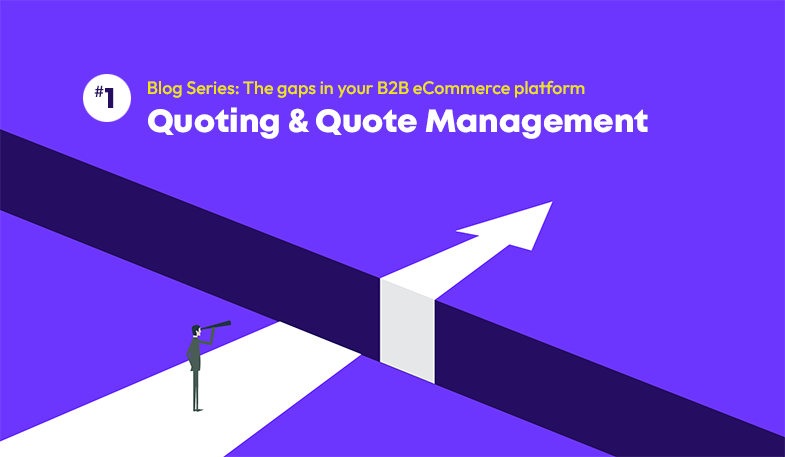Seven Keys to a Successful eCommerce Launch: Key One – The Planning Framework

EDITOR’S NOTE: This blog post is the first in a continuing series. If you’re considering an eCommerce project at your company, you’ll want to watch this space. The posts in this series – and the link to resources at the end of each post – will help you complete some vital groundwork and address important questions that will save you time, work, and money. We hope you enjoy them and find them useful.
Quick: What does Benjamin Franklin have to do with eCommerce? Anything come to mind?
While this venerable Founding Father was born long before the laptop, he did coin the saying, “If you fail to plan, you are planning to fail!” Franklin’s sage advice has withstood the test of time, and it applies perfectly to eCommerce launches. Making the decision to undertake an eCommerce project at your company is a smart one, but too many businesses rush straight into interviewing and hiring web developers. They skip the first and most critical step in the entire process –planning. Don’t let “failing to plan” happen to you.
Your planning framework is the first key to eCommerce success, whether you’re selling a service, an event, subscriptions, access to online content, merchandise, or a combination of these items. So how do you build your planning framework? By asking yourself lots of questions! Before you even invite a vendor through the door, make sure you’ve addressed these three:
- What is an eCommerce plan?
- Why is an eCommerce plan important?
- How do I get started?
Let’s tackle that first question.
What is an eCommerce plan, anyway? Simply put, your eCommerce plan is the yardstick by which you’ll define (and measure) your company’s expectation of success. But in order to do that, you need to figure out your objectives, your requirements, resources, and timing.

Objectives can vary. It’s not enough for people in your company to say, “We want a successful eCommerce plan – let’s make it happen!” Success in and of itself is not an objective. So you’ll need to speak with all of the decision-makers and stakeholders in your business and ask them how they define success. The CEO might have one set of objectives in mind, while the CMO has others. Maybe the COO has additional thoughts. It’s important for everyone to name and identify their objectives. In this earliest planning stage, you want to get as specific as possible.
Now that you’ve defined those objectives, you can get down to defining your requirements. Think about it: You can’t run until you’re able to walk. It’s the same with kicking off an eCommerce project. You can’t possibly understand what you need to do until you have established your goals. It’s important that everyone in your company knows what they’re building, so they know exactly what’s required to build it.
DOWNLOAD OUR ECOMMERCE REQUIREMENTS GUIDE FOR B2B COMPANIES
In addition to defining your objectives and your requirements, your eCommerce plan should define your resources and timing. You’ll need to think about and calculate what the overall cost will be to your company, both in the form of actual dollars spent and the cost of the time spent on it.
Now let’s consider the second question.
Why is an eCommerce plan important? There are so many good reasons to have an eCommerce plan in place before you get down to work. Here are some of them:
It ensures that leadership is on the same page. When everyone has set their expectations, defined their objectives, and prioritized their tasks, it’s easy to work together and avoid misunderstandings.
It streamlines vendor selection and communication. A comprehensive eCommerce plan lets you make apples-to-apples comparisons as you evaluate potential vendors. It also lays the groundwork for agreements with those vendors.
It educates your internal team. Without a plan, it’s easy to assume that everyone in your company knows what they need to do; that kind of assumption opens the door to error. A detailed plan educates and informs so that everyone knows exactly what is going on during the project.
It addresses timing and costs. Large projects can quickly get out of hand if expectations and details aren’t nailed down. A thorough eCommerce plan keeps that from happening. An effective plan:
- incorporates a timeline
- allocates resources
- determines a budget
- allows for the adjustment of objectives and requirements as necessary
- provides a mechanism for communicating adjustments to everyone who is working on the project
Finally, it’s time to address the third question:
How do I get started? It’s easy to get overwhelmed at the beginning of any large project, especially with one as important as your company’s eCommerce activities. Luckily, ten24 has a free planning template that will help you break down the entire project into specific, measurable, and attainable tasks. Use the link below to download our eCommerce planning template, which provides a step-by-step guide to creating your own customized eCommerce plan. Start by clicking on the first tab, (“Overview”) and sit down with your company’s leadership team to determine your objectives and set your goals. Populate this tab with your company’s information and be sure to save it. You’ll be referring back to this document and completing the rest of the tabs with each subsequent blog post in this series.
Stay tuned for the second post in this series: Marketing Objectives. In the meantime, please share your comments and questions about this blog post with us!
Resource Center

A new blog series about the critical eCommerce capabilities missing in most eCommerce platforms for B2B companies. #1: Quoting & Sales Support

A closer look from the Ultra perspective on what we really mean when we talk about headless commerce and why it may not be right for every company.

Davis Art is now the only online K-12 publisher dedicated to the arts, creating top-notch curriculum and resources for art educators nationwide, all from the Ultra Commerce platform.
